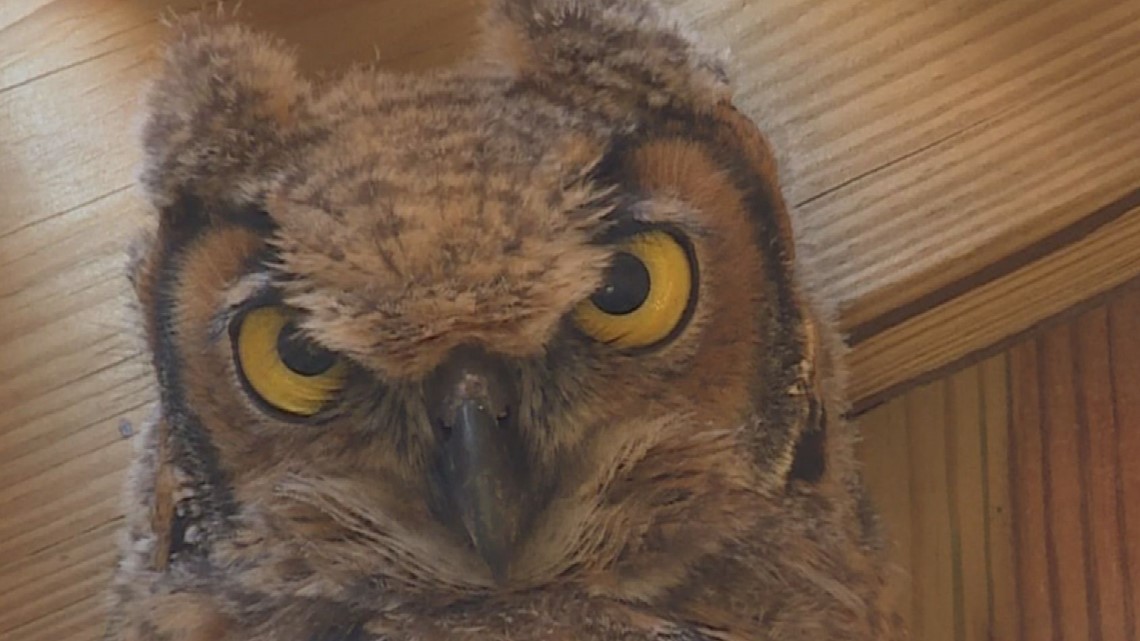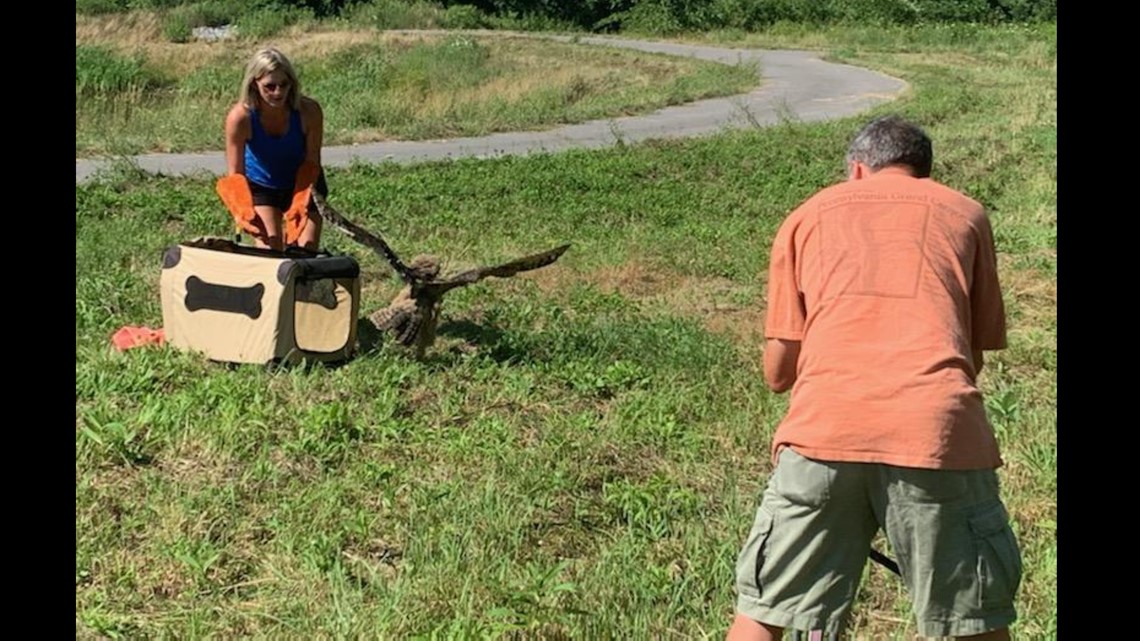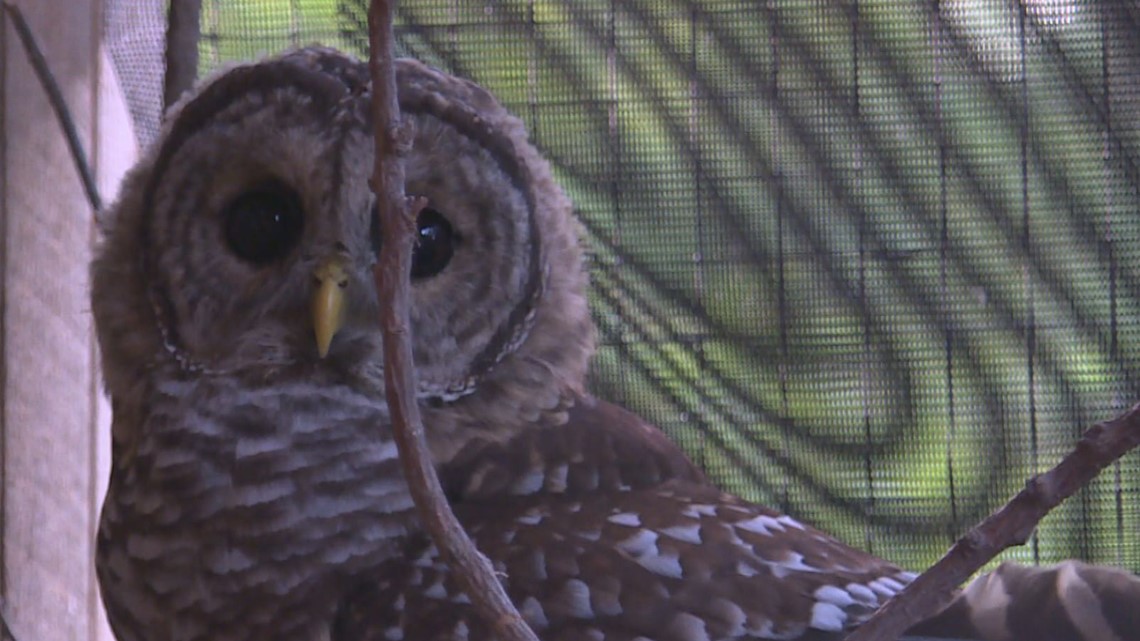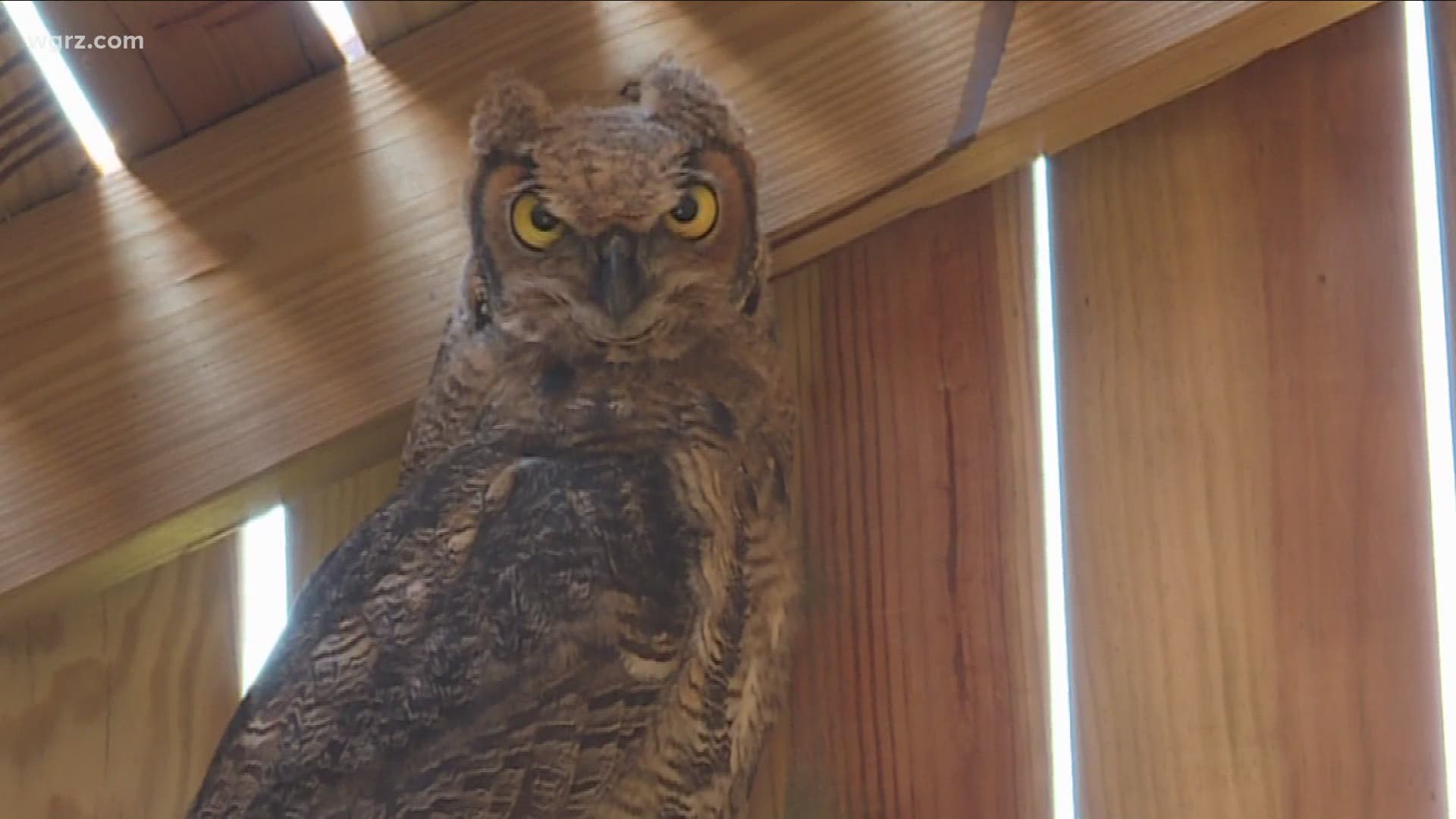ORCHARD PARK, N.Y. — Wildlife rehabilitators across the region have had their hands full, as always, during this season of discontent.
Western New York Raptor and Wildlife Care is based in Orchard Park. One of its recent patients was a female great horned owl, found injured on a roadside and reported to the center by some good samaritans.
Center Director Bernadette Clabeaux describes the owl's process of recovery, "She was completely emaciated, body score index of maybe one — she had no muscle on her keel, which is the breast bone for birds. And she couldn't even eat. So we got her eating, we got her hunting, conditioned her and she was released two months later, which was really exciting."


Great horned owls are a striking species, with their prominent head feathers and distinctive loud calls. Though they are seldom seen because of their nocturnal nature they are common in New York State and Clabeaux says these powerful hunters play an important role in the environment.
"They have gorgeous adaptations so obviously sharp pointed bill, sharp talons," Clabeaux said. "They are going to be controlling rodent populations in fields, forests, things like that. So very important for control of rodent populations, yeah."


The center's mission is multi faceted. They are currently conducting research with other institutes, studying the avian West Nile virus as well as the effects of toxic metals on birds.
Another dimension to their work is a connection to higher education. The center's director is also a biology professor at Medaille College. She says her students get the benefit of being able to work directly with her and her many wildlife patients.
"So our students get basically a lot of the stories that we have in the summer, we convey them in the classroom and talk about them there," Clabeaux said. "And they also get hands on experience through summer internships, research projects and also through lab experience."


This hands on learning is a boon for both students and the center. This direct experience helps inspire the next generation of wildlife warriors. Jessica Culbert is one of Clabeaux's students at Medaille.
"It's definitely opened up my eyes to a whole new world, and it's really exciting to help birds and wildlife," Culbert said.
Rebecca Lesser, another Medaille student, agrees.
"We get all that contact from them so if we can put in a little effort into helping them, conserving and saving them, we're going to get a lot back from them," Lesser said.
For more information on Western New York Raptor and Wildlife Care, click here.

